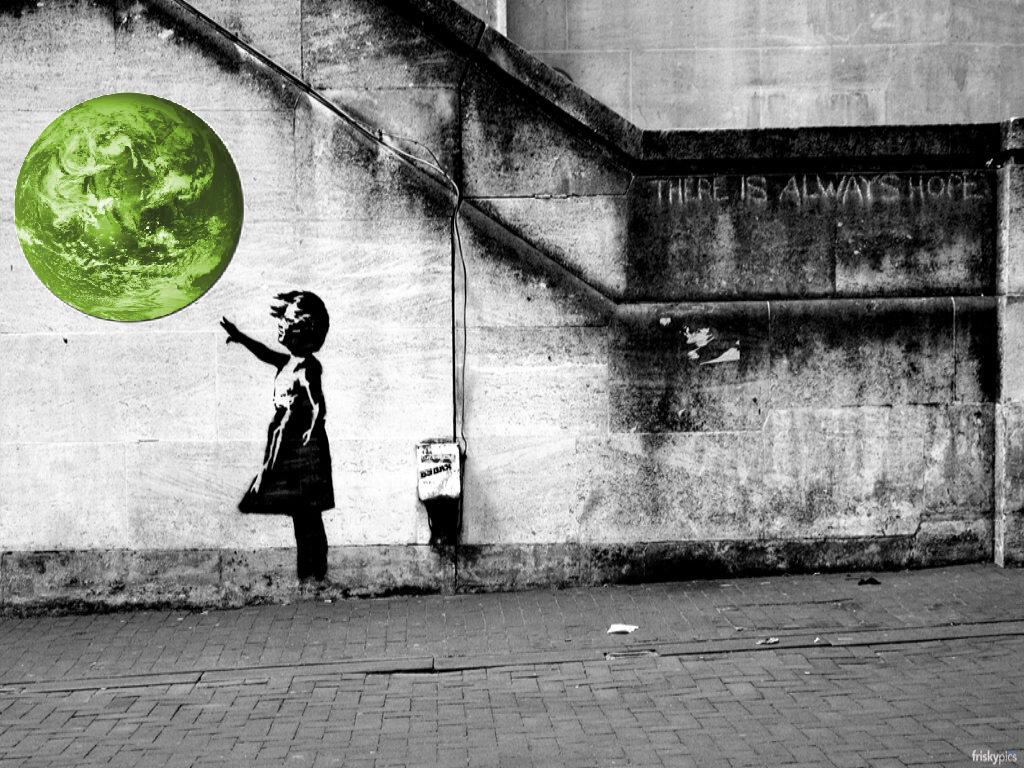From Guest Blogger Maryann Keel: How to Negotiate a Greener Future
Close your eyes and imagine a world where money and politics, greed and wealth, power and domination aren’t the driving forces for many people. Imagine if we were able to put our differences aside, forget about trying to be the best or to have the most, and just work together to protect this world we live in. What you’re imaging is a greener future… A world where everyone understands the significance of Mother Nature and the many gifts she has to bestow upon us. As a whole, we’ve got to realize how fragile our ecosystem is on this planet, and how countries have been playing a game of chicken that’s been going on for far too long.
I think if you sat down all the heads of the huge corporations that are fighting for the right to keep pollution, if you sat down all the world leaders who represent the interests of the powerful few, and you sat down even the most hardened capitalists, at the end of the day they would all agree that nature is important and we’ve got to do what we can to protect it. Unfortunately, it’s never that simple. Take the WTO and Doha round negotiations for example. By the time anything gets sorted out and implemented, it can already be obsolete or the problem it was meant to address has already drastically worsened. It would probably help if the WTO was able to implement these changes instantly, but that brings us back to the corporations and other groups who are fighting to keep the ball in their own court and to keep control.
What’s Going to Take to Make a Change?
In order to get through to those who are in control and have the necessary influence to really make a greener future, you have to speak their language which is the language negotiations. Negotiation is a very powerful tool, and it’s already employed more often than many people realize. For example, when the head of a company comes out with a controversial opinion and people start boycotting that company, 99 out of 100 times they end up back peddling and issuing an apology. We have power in numbers, and power is an incredibly important factor in any negotiation.
When it comes to negotiating, national representatives have a very simply motive and that motive is to work towards changes to the rules that favor their nation, and sometimes their allies depending on how twisted the web of politics is at the moment. However, when everyone is trying to get the best deal for themselves, that’s where negotiation once again comes into play but the problem here is that the biggest bargaining chip on the table isn’t about what’s best for the environment, or helping to leave a sustainable world for our children, because it comes back to corporate interests and the bottom line and none of the big players want to the be the first to make the change since they’ve got shareholders to answer to. Putting the environment ahead of profits could literally mean the people running the company get put in jail, as they have a legal responsibility to earn as much money as they can for shareholders.
Examples of Negotiations and Their Impact on Mother Nature
There are a lot of very smart people thinking of ways to solve the problems our environment is faced with, but they’re not approaching these issues from the capitalist side and they often lack the negotiation competence and skills to have the necessary pull. Here are a few examples of events with huge impacts on the environment, and how negotiations played or continue to play a significant role in their development.
Here’s a good example, the fact that some people think climate change is even still up for debate as to whether it’s real or not. Still, certain people feel that the climate exceptionalism associated with climate change is coming to an end, so we’re finally at a time when we can soberly deal with the facts. Sensationalism on both sides of the negotiation has had a negative impact on progress.
One of the best examples of negotiations on a world scale that has an impact on the environment is free trade agreements. In particular the TTIP, which increases transatlantic trade. Less taxes and more sea travel is a double-whammy against trying to do less harm to our environment. Do you think there are any people involved in those negotiations that aren’t looking out for their own interests first? Why doesn’t nature get a seat at the table, too? Remember, while these negotiations are taking place, the real topics of discussion are money and the bottom line – not the environmental impact.
Final Thoughts
Some of the most significant environmental negotiations that have ever, and will ever take place are those regarding nuclear power, nuclear weapons and energy in general. With the press of a button, it becomes possible to instantly demolish an entire section of our planet indefinitely and to cause irreparable harm to all living beings. Not all negotiations have such a significant impact, but they are all important. Even the ones we face ourselves, in our day to day life, like choosing to pay a little bit more money for an LED light bulb. We aren’t the presidents and prime ministers of powerful nations, or the CEOs of global corporations, but we can all take steps towards a greener future.
Image source:http://www.thegreenmarketoracle.com/2011/12/hope-remains-despite-dissapointing.html

